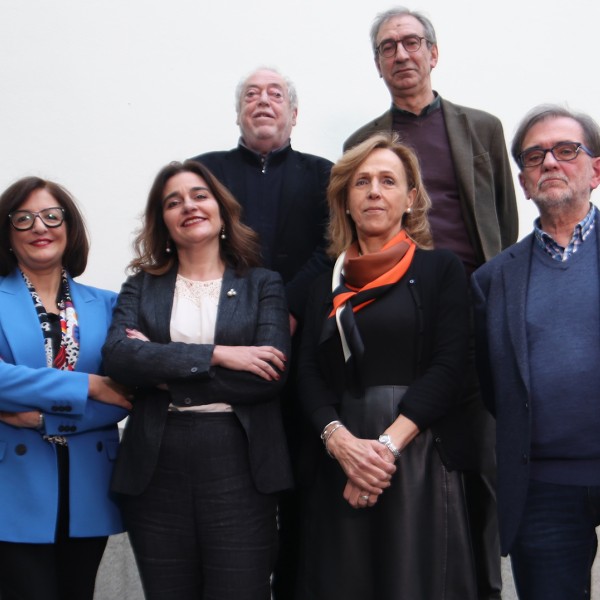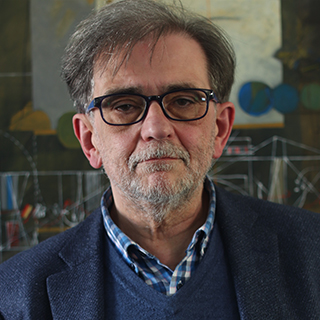Vice-Rector for Quality and Academic Development
From its foundation, and in partnership with public and private entities, Lusófona University (ULusófona) has upheld the principle that quality is key to the pursuit of all its activities, as well as to its development for the good of a society increasingly dependent on university education and science. The culture of quality must, therefore, prevail and be of particular and general interest.
ULusófona has framed the importance of quality and its management in all university agents, from students, teaching and non-teaching staff to academic partners.
Along with Lusófona University’s mission and its strategic goals, the following have been set as framework documents for quality and its management:
The Internal System of Quality Assurance (SIGQ) aims to foster quality in the university’s structures, and comprehends all the activities of the institution. SIGQ is, simultaneously, an instrument to foster quality and to support the University’s strategic planning.
SIGQ’s development and continuous improvement is based on structures and on a formal framework that enable the implementation of the institutional policy and strategies for quality, namely:
- Possession of clear objectives framed in documents, laws or orders;
- Incorporation of structures and coordination levels of responsibility that enable their operationalization;
- Implementation of feedback collection mechanisms from the interested parties, and of monitoring of good practices;
- Promotion of the production of performance indicators and their dissemination to allow for continuous improvement of the institution.
The structures for the coordination, articulation and support to Quality Assurance and Academic Development are, first and foremost,
- The Rectorship, the Administration and the Organic Units.
- The Quality Assurance Service (SGQ).
- The Office for Institutional Development.
The information produced is made available to all the academic bodies, organic units and administration, thus allowing for the contribution and reflection of all those involved in quality assurance in academia.
It is our wish for the next 3 years to consolidate ULusófona as a forward-looking university, thereby complying with all the scientific, pedagogic and managerial requirements that place us among the best.
- Supervise and monitor the practices and processes for optimizing the university's quality management;
- Supervise and monitor the procedures for articulating the different agents and structures in the Internal Quality Assurance System, its compliance and certification;
- Supervise and monitor the operational processes for the institutional development of the university;
- Supervise and monitor academic management processes in partnership with the organic units and administration;
- Support the teaching staff evaluation process and the holding of internal competitions.
Vice-Rector for Internationalization
The university is, by nature, international, be it due to universal knowledge or to the circulation of students and scientists. Still, the "internationalization of higher education"; is a phenomenon that, albeit not recent, finds today, in the European Higher Education Area, the favourable ecosystem for its development. The future of higher education in Europe involves cooperation between universities and the ability to attract European and international students.
The vocation and strategic interest of Lusófona University (ULusófona) is transnational cooperation, stemming from education and exchange relations with European and international higher education institutions (HEI) and, in particular, with the Portuguese- speaking countries. Belonging to the same linguistic community has always strengthened the ties of thinking and creative production, as well as the dialogue between peers. Boosting external relations of a multidisciplinary and transversal nature, and that involve the deepening of knowledge, along with the exchange of different cultures, as well as cultural and outreach activities, further promote this open matrix of ULusófona.
It is in this way that this internationalization programme envisions the consolidation of the existing protocols as well as the academic and institutional cooperation with university and HEI associations from different countries, even beyond the Community of Portuguese Speaking Countries (CPLP) and Europe, attesting to Ulusófona’s international recognition. The main benefits and reasons to pursue internationalization are the improvement of the quality of teaching and learning, and students’ ability to live and work in a multicultural, diversified, global world. It is up to us to identify cooperation opportunities in these ecosystems, through projects of alliances and strategic partnerships with national and international HEIs, associations and organisations.
The Vice-Rectory for Internationalization is responsible for:
- Promote international cooperation and support university participation processes in networks, consortia and strategic alliances;
- Monitoring partnerships with registered international institutions, current and future;
- Encourage and guide activities with international associations and represent the university;
- Strengthen ties with the Community of Portuguese Speaking Countries (CPLP);
- Foster partnerships with Higher Education Institutions (HEIs) for the creation of Joint Study Programs;
- Increase participation in co-supervision doctoral programs;
- Disclose international protocols and partnerships with the organic units of the Lusófona University Centers – Lisbon and Porto, with the aim of intensifying and making cooperation and transversality profitable;
- Encourage the creation of chairs, in articulation with the other vice-rectories and pro-rectories, namely with the Academic Community and Citizenship and Research, with a multidisciplinary, transversal character and of deepening the dialogue between different cultures;
- Promote cultural activities to connect with society in general, namely with regard to the Centro Universitário Lusófona - Porto.
Vice-Rector for the Academic Community and Citizenship
The issues pertaining to the academic community represent one of the university’s activity segments, justifying the existence of a vice-rectorship aimed at ensuring contact with students and their respective structures, as well as with alumni, while also taking on the creation and management of support mechanisms to the student body, along various dimensions.
Nonetheless, a university also plays a relevant role in the field of the cultural enhancementof students, of the promotion of citizenship, and the defence of values underpinning human rights, without forgetting their inherent duties. Indeed, this results in the statutes of ULusófona, particularly in its Article 2, which sets as mission of this higher education institution the creation, transmission, critique and dissemination of culture and art, alongside science and technology. Attending a university, as student, presupposes technical-scientific as well as research-oriented training, but also the acquisition of principles for full and responsible citizenship.
Therefore, the duties and powers of the vice-rectorship include:
- To ensure the working, management and supervision of the support mechanisms to students;
- To represent the University before student associations, whether general or sectoral, and before alumni bodies;
- To represent the University and supervise the different committees, particularly those engaged in ethics, discipline and gender equality;
- To promote initiatives addressing cultural policy and the management of existing mechanisms;
- To organise technical-scientific conferences and seminars partnering with central and local administration institutions with which the University engages in institutional cooperation;
- To define policies aimed at promoting citizenship, equity and inclusion, and organise events with a view to implementing said policies;
- To support the Strategic General Council;
- To preside over the Electoral Committee and, in compliance with protocol regulations, the organizing committees of the University Day and of the Opening of the Academic Year, as well as other ceremonies of an academic nature.














